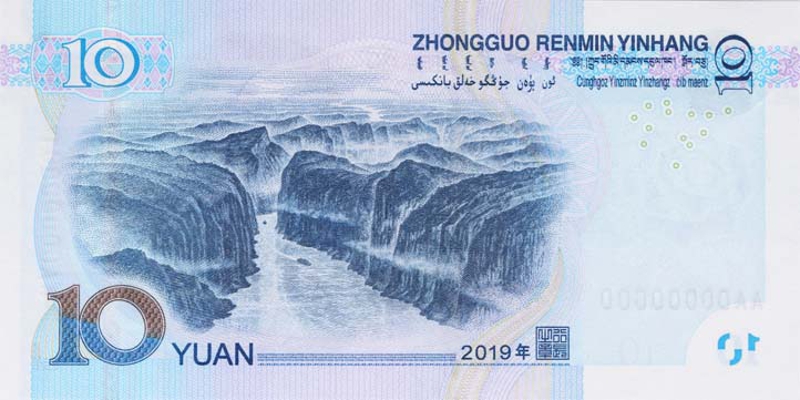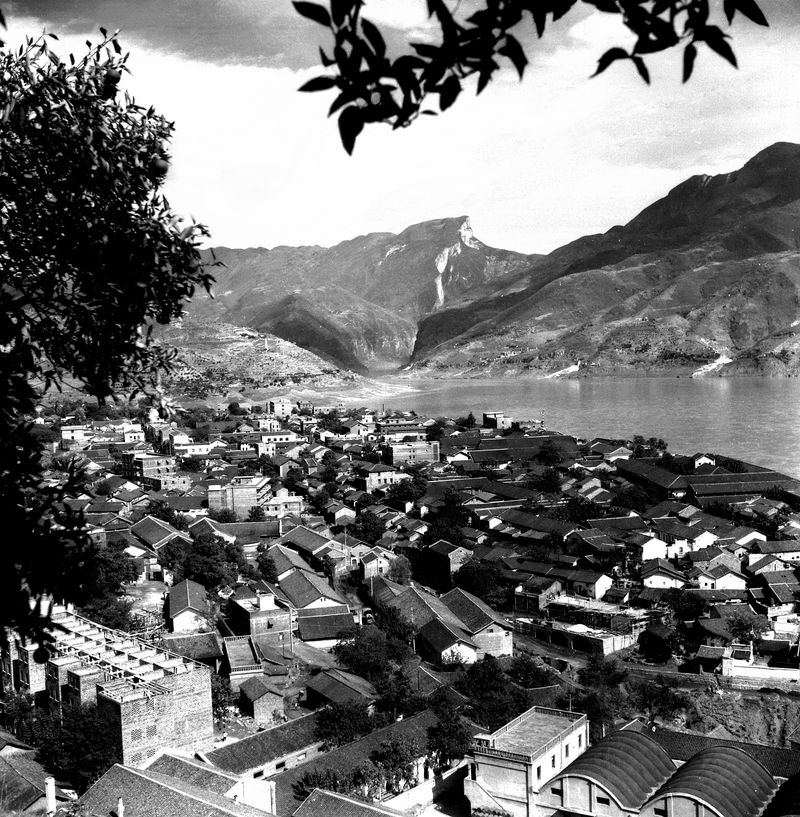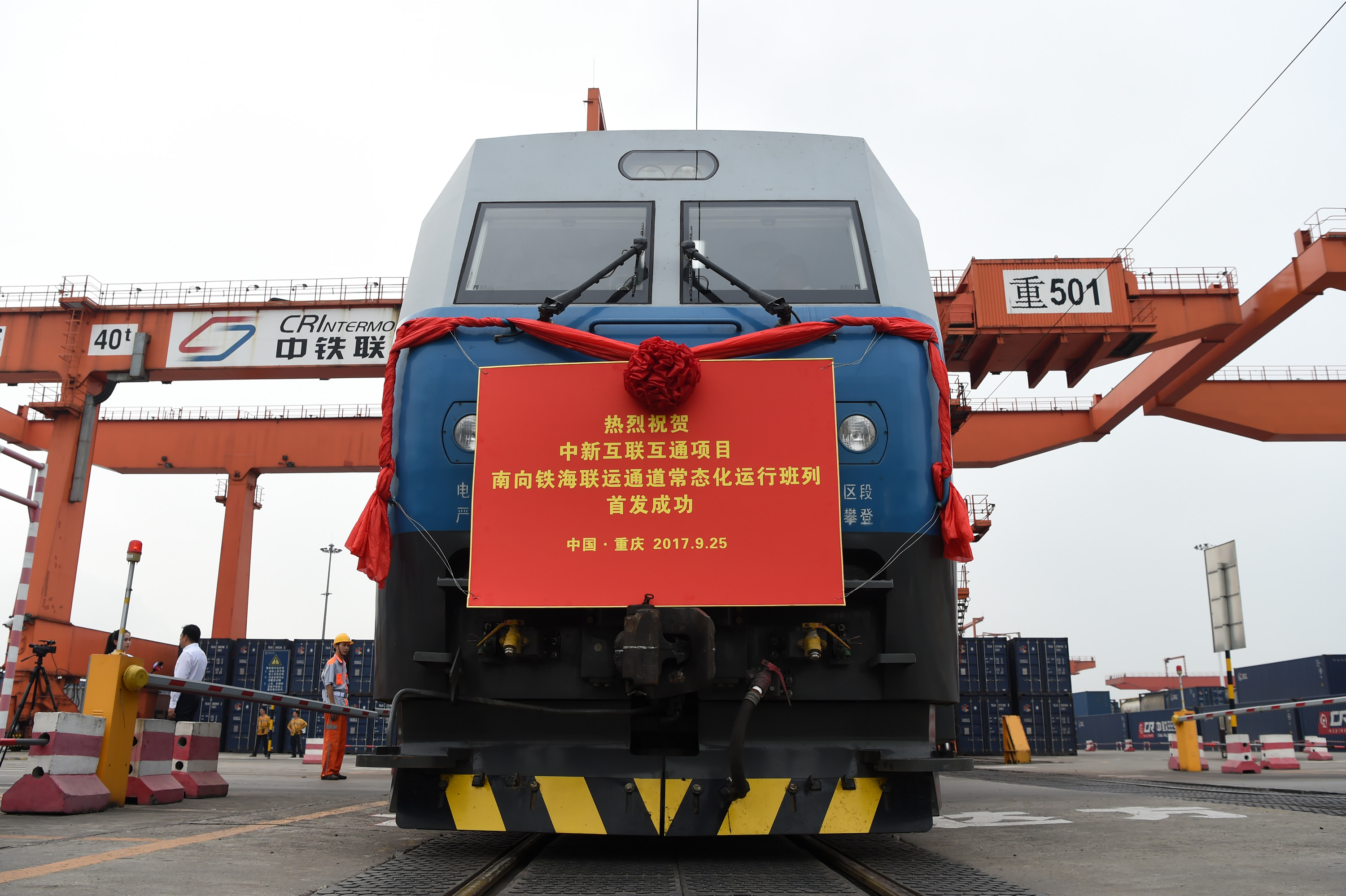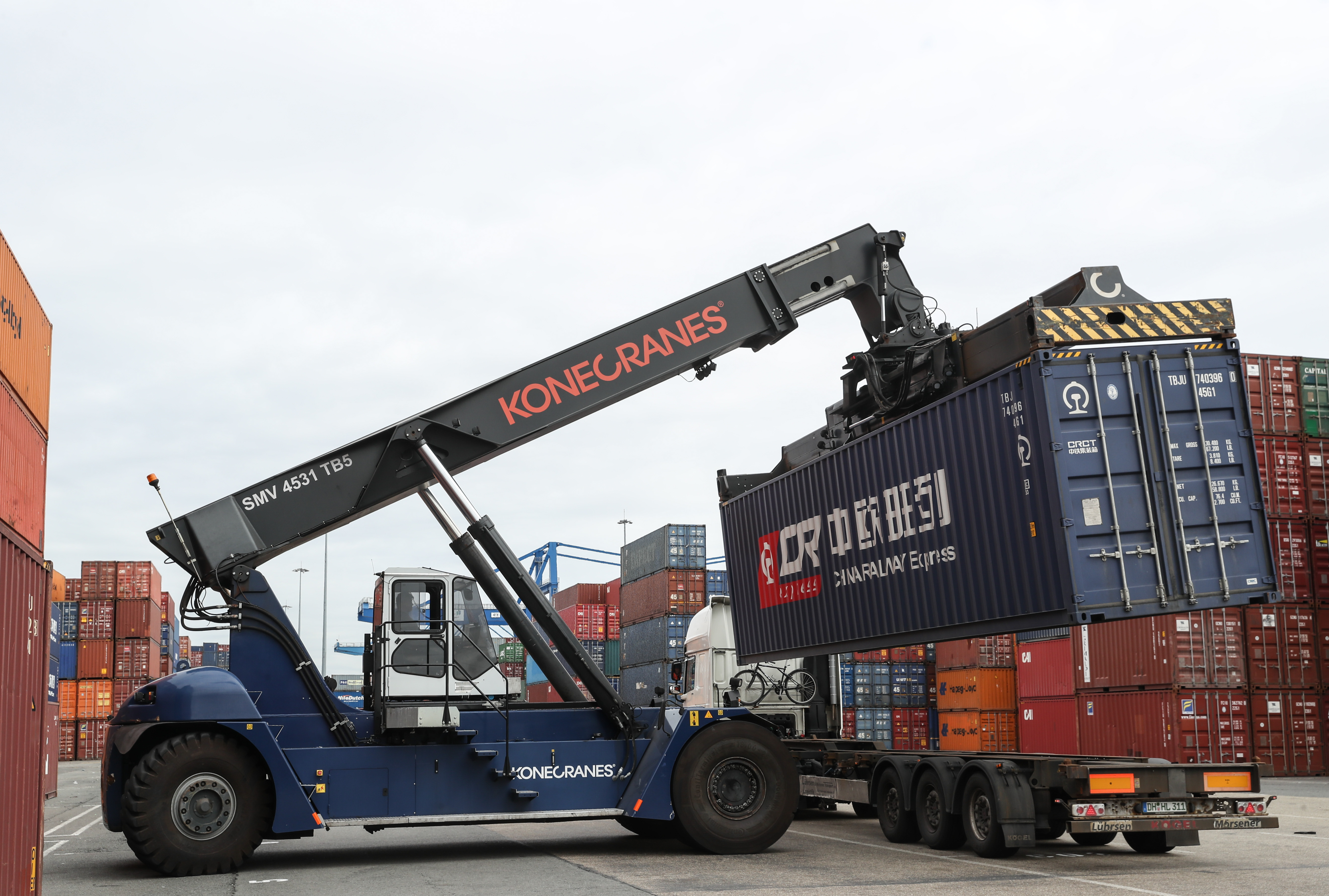Better home, better life and better future. China's hotpot city Chongqing transforms from a landlocked city into an international metropolis.
CHONGQING, Nov. 20 (Xinhua) -- Upstream along the Yangtze River lies Kuimen, a gateway to the steepest gorges of the longest river in China.
According to Chinese mythology, Kui is a one-legged mountain dragon, which made waves in the river and filled people with fear and awe. The stunning landscape at Kuimen did not fail to fascinate China's banknotes designers. The back of the 10 yuan banknote, now in circulation, is the Kuimen Gate.

The reverse side of a 10-yuan banknote in the 2019 edition of the fifth series of China's currency the renminbi. (Xinhua)
Hu Hong, 26, grew up near the steep mountain. Now working as a tour guide, Hu tells boat travelers about the story of Kuimen and the county of Fengjie, where Kuimen is situated.
"When I was young, we did not have many visitors, but now about 10,000 people come to see Kuimen every day. This place is getting really popular," Hu said.
Like many other places on the upper reaches of the Yangtze River, rapid currents and narrow riverways used to daunt tourists and merchants and prevent them from venturing deep into southwest China in the past.
Since the building of Three Gorges Dam, the world's largest hydropower project, the river surface rose to allow the passage of cruisers and large cargo ships. The old county of Fengjie in Chongqing, like many other towns, was totally submerged in 2008.

Photo taken on September 28, 2017 shows the scenery of Kuimen. (Xinhua/Liu Chan)
Fengjie gained its reputation as the "city of poetry," as poets, military figures and politicians who stayed there wrote extensively about the forbidding landscape.
The outspoken Hu is an avid fan of poetry. "I hope more people come to explore the culture of Fengjie and enjoy poetry as I do," Hu said.
Young people like Hu have their eyes set on the future, but for Zhao Guilin, a 74-year-old retiree, history and memory matter more.
Before water began to submerge Fengjie in 2003, Zhao raced against time to preserve the memory of the county. He later built a private museum in the new county of Fengjie, 10 km away from the old one, to show old photos, documents, books and furniture.
In his memory, the old town was very crowded. Many people lived in extreme hardship and poverty. "Families needed to empty their chamber pots every day because the public toilets were far away, and most people had no toilet at home," Zhao said.

The old town of Fengjie. (File photo provided to Xinhua)
In the new town of Fengjie, apartment buildings that are over 20 stories high sit along sharp slopes. Tourists pack star-rated hotels with stellar infrastructure.
Over the past 70 years, people built new homes, created more wealth and have new dreams. Chongqing, a landlocked city has seen its connection with the outside world getting much closer today than ever before.
With a population of over 30 million, the municipality, one of the largest cities in southwest China, has made great progress in various fields including Internet economy, transportation, public service, emerging industry, and foreign trade.
Entrepreneur Xu Rongcan, who grew up in a mountain home in Chongqing, built up wealth and success in the fashion industry over the past few years.
"My family was poor. My parents raised chickens, but they hardly ate any eggs because they had to sell the eggs to pay for my school," he said.
Xu opened the first outlet store in Chongqing in 2008, selling luxury clothes from Europe, and his business chain has expanded to a dozen cities across the country, including the eastern cities of Hangzhou and Nanjing, generating around 80,000 jobs.
"People are different now as the times are changing. They have so many clothes that they don't need to go shopping for clothes for years. But when I was young, all I wanted was to buy one T-shirt," said Xu, board chairman of Sasseur Group.
Last year, Xu raised 396 million Singapore dollars (about 288 million U.S. dollars) at the Singapore exchange through Real Estate Investment Trust to finance its expansion.
The financing was carried out through the China-Singapore (Chongqing) Demonstration Initiative on Strategic Connectivity.

A train under the China-Singapore (Chongqing) Demonstration Initiative on Strategic Connectivity program is ready to leave Chongqing's Tuanjiecun Station on September 25, 2017. (Xinhua/Tang Yi)
"Financial cooperation through the initiative opens a door for enterprises in western China. It reduces the financing costs of companies and improves efficiency. In the process, we help enterprises, provinces and cities solve financing problems," said Han Baochang, bureau director of the initiative.
So far, financing costs have been cut by 1.4 percentage points on average since the initiative was launched in November 2015, with more than 10 billion U.S. dollars being raised, said Han.
The cooperation between China and Singapore marks an important part of the Belt and Road initiative, which opened up Chongqing wider to Southeast Asia.
In 2011, Chongqing sent the first train to Duisburg in Germany on the China-Europe Railway. The land trade corridor has strengthened the connection between Chongqing and Europe.

Photo taken on April 11, 2017 shows a cargo of China Railway Express being moved at Duisburg Intermodal Terminal (DIT) in Duisburg, western Germany. (Xinhua/Shan Yuqi)
China started to implement a national strategy of developing the west in 1999. Nowadays, steep gorges like Kuimen and long distances are no longer barriers for development, and western China is ready to further open up.
Wang Jiangyu, deputy director, People's Bank of China Chongqing Operations Office, said her office has stepped up financial innovation to help businesses and facilitate the Belt and Road Initiative.
"We hope more international companies will come to Chongqing, and vice versa. In the process, we are in a better position to participate in the making of land-based trade rules and to inspire and meet more demands of people around the world," she said.
(Reporting by Huang Yan, Lou Chen, Xia Xiao, Zhao Yufei and Zhang Chi; Video editors: Yin Xiaosheng)



